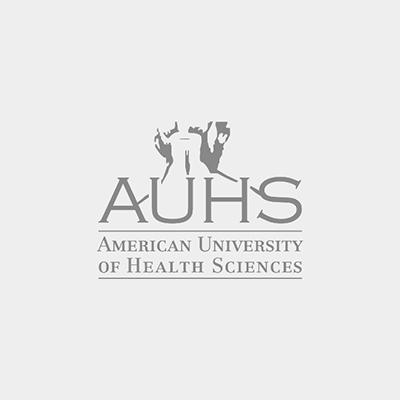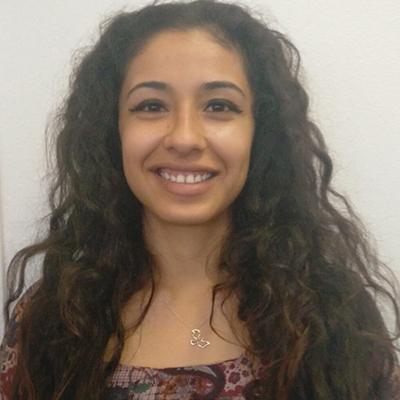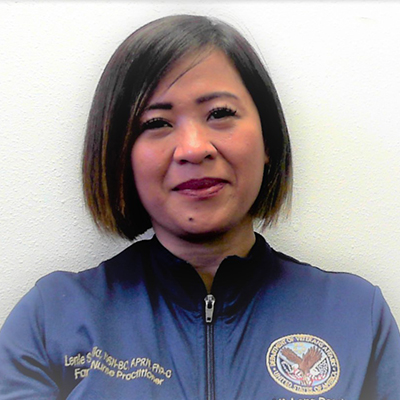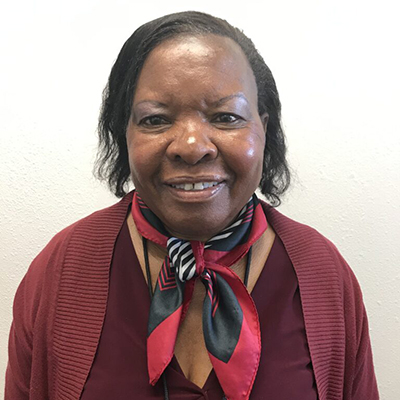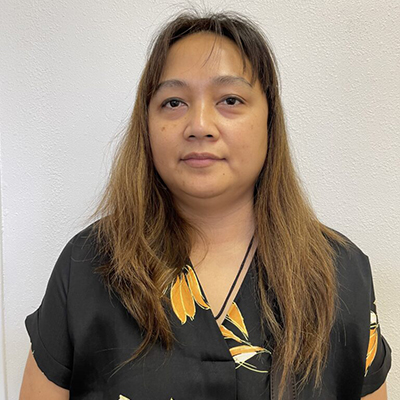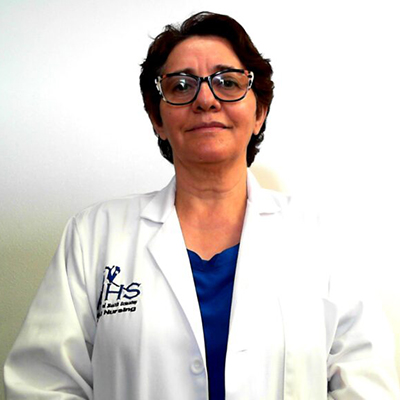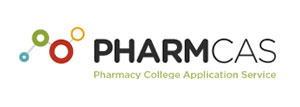
The School of Pharmacy utilizes Pharmacy College Admission System (PharmCAS) for application and enrollment management. Applicants should read the website for information on how to apply through PharmCAS.
Admission Procedures
The Admissions Committee reviews and proposes admission policies for requirements, standards and goals for admission to the SOP and uses a rolling admission process. PharmCAS verified complete applications will be continuously reviewed until the published deadline of the SOP for admission. PharmCAS verified complete applications that clearly fulfil admission requirements of the SOP are rank ordered based on academic achievements and other quality indicators. Based on the rank order, applicants will be invited for an onsite interview. The interview day activities include an interview with faculty and preceptors, essay writing and campus tour. Following the interview, the admissions committee takes a holistic review, taking into consideration the results from the interview day activities, academic accomplishment (e.g. GPAs, results from standardized tests, and course workload), recommendations, work and/or volunteer experience, among others and makes recommendations.
| Click to download the PharmD Admissions Consultation Packet | |
How to Apply
Step 1: Complete PharmCAS Application pharmcas.org
Submit required documents:
- Colleges attended
- Official transcripts
- Three letters of recommendation; one from an instructor, one from a health care provider and the 3rd from either of the above or from an employer (recommendation letters from friends and family members are not accepted)
- Overall GPA
- A personal statement
- Optional essay for candidate to share any additional information
Contact AUHS School of Pharmacy Associate Dean of Student Affairs and Admission for questions regarding the program:
Associate Dean for Academic Affairs and Admissions
Associate Professor of Pharmaceutical Sciences
1600 East Hill Street
Signal Hill, CA 90755
ahussain@auhs.edu
(562) 988-2278 x 2068
Step 2: Interviews
Once submitted documents have been verified through PharmCAS, selected candidates will be invited for an on-campus interview.
Admission Requirements
To qualify for consideration for admission to the School of Pharmacy, applicants are required to have completed the following pre-requisite courses:
| Specific Courses That Must Be Completed Prior To Matriculation | Quarter Credits | Semester Credits |
| General Inorganic Chemistry with Laboratory | 12 | 8 |
| Organic Chemistry with Laboratory | 12 | 8 |
| General Biology with Laboratory | 12 | 8 |
| Microbiology with Laboratory | 4 | 3 |
| Human Anatomy with Laboratory | 4 | 3 |
| Human Physiology with Laboratory | 4 | 3 |
| Statistics | 4 | 3 |
| Calculus | 4 | 3 |
| Principles of Economics (Macro or Micro) | 4 | 3 |
| Psychology or Sociology | 4 | 3 |
| Public Speaking | 4 | 3 |
| English Composition | 4 | 3 |
| Other humanities and social/behavioral sciences (such as philosophy / history / anthropology / ethics / english literature / religion / political science) | 8 | 6 |
| Total | 80 | 57 |
Student applicants must have received a grade of “C” or better in all the prerequisite courses. Admission to the SOP is competitive; therefore, meeting the above criteria will not automatically guarantee admission. A cumulative GPA of 2.5 or above is required for admission. A baccalaureate degree is preferred for admissions. PCAT is not required but highly recommended. The SOP will also consider Armed Services Vocational Aptitude Battery (ASVAB) scores as additional data point. International applicants whose native language is not English will be required to have a Test of English as a Foreign Language (TOEFL) composite Score of 100 (iBT) or 250 (CBT) unless they earned a baccalaureate degree from an accredited college/university in the United States or other countries in which the native language is English. Transcripts in a foreign language must be translated. We recommend foreign transcripts be translated by World Educational Services (WES) and submitted to PharmCAS.
Transfer of Credits
Decision on transfer applications are made by the Admissions Committee in cooperation with the office of Academic & Student Affairs on a case by case basis. Factors considered include admissions standards and appropriateness of courses completed to the academic level to which transfer is requested. The course credits must be earned within seven years of application to AUHS. Students seeking transfer must submit the following documents to the Associate Dean of Student Affairs and Admission:
- Official transcripts from all undergraduate, graduate, and/or professional schools attended.
- A letter of recommendation from the program director/Dean of the previous institution
- A letter of recommendation from a faculty member of the previous institution.
- A detailed description (no more than two pages) of the specific circumstances why a transfer is being sought.
Transfer applicants are invited to participate in the formal interview process, and their files are forwarded to the Admissions Committee review.
School of Pharmacy Program Technical Standards
The AUHS School of Pharmacy is an accelerated program that prepares graduates with the requisite knowledge, skills and attitudes to enter the practice of pharmacy. The technical standards describe the Intellectual, Conceptual, Integrative and Qualitative abilities, Communication, Behavioral, Ethical and Professional Attributes, Visual/Auditory, and Motor coordination and function that are required for pharmacy education and practice. These competencies are not only necessary to successfully complete the course of study, but they are also essential for ensuring the health and safety of patients, other healthcare professionals, faculty, staff and fellow graduates. In these policies, the term “graduates” will refer to graduates seeking admission to the school, as well as those already enrolled and progressing to graduation. In order to admit, evaluate, promote and graduate any person, it is the obligation of the graduate to meet these minimum technical standards. The Admissions committee oversees adherence to the technical standards. Responsibilities of this committee are:
- Interpret, review and recommend revision of the SOP Technical Standards for pharmacy education.
- Review situations where accommodations are needed for students to be able to meet the SOP Technical Standards.
- Determine whether recommended accommodations can be provided in a reasonable manner.
Graduates who seek reasonable accommodations for a disability, medical condition or temporary injury/condition must contact the Office of Student Affairs.
Applicants for admission to the PharmD program must possess certain abilities and skills, which are categorized below as observational, communication, sensory/motor, intellectual, conceptual, integrative and quantitative, behavioral and social. In addition to these abilities and skills, a candidate for admission must also:
- Provide an up-to-date record of all required immunizations, which needs to be on file with the Office for Student Affairs and Admission in the School of Pharmacy.
- Have a criminal background check that raises no concerns.
- Have access to transportation.
- Provide proof of healthcare insurance.
Admitted pharmacy students
Due to the interactive and technical nature of the PharmD program and the pharmacy profession, there are additional skills and abilities that a graduate must possess in order to participate in the program. To successfully progress, and to be approved for graduation, graduates must satisfactorily perform the abilities and skills outlined below during the course of their pharmacy education. The school will make efforts to work with admitted pharmacy graduates who are identified as demonstrating technical skill deficiencies. Graduates requesting reasonable accommodations to perform the technical skills must contact the Office of Student Affairs.
Intellectual, Conceptual, Integrative, and Quantitative Abilities
- Critical and logical thinking ability sufficient to engage in clinical judgment and problem solving to address issues and problems within all learning environments.
- Multi-task and to perform work in a logical and sequential manner. Memorize, perform scientific measurements and calculations, reason, analyze, and synthesize information.
- Demonstrate ability to retrieve (electronically and manually), read, understand, and interpret medical, scientific, and professional information and literature.
- Demonstrate the intellectual and reasoning abilities required to develop critical thinking, problem solving, and decision-making skills.Demonstrate the ability to learn effectively through a variety of modalities including, but not limited to, classroom instruction, small group discussions, practice lab, individual study of materials, preparation and presentation of written and oral reports, and use of computers and other technology.
- Demonstrate ability to prioritize and complete tasks in laboratory, clinical, and patient care setting with time constraints.
- Perform a variety of duties accurately, often changing from one task to another without loss of efficiency or composure.
- Accurately and independently evaluate his/her own performance and formulate strategies for addressing deficiencies and improving professional skills.
Communication
- Read, write, speak, and comprehend English with sufficient mastery to communicate clearly (understanding and being understood) and professionally with faculty, preceptors, administrators, staff, peers, patients and other health care professionals in a mature, sensitive and professional manner that reflects the primary traits and the core values of the college.
- Communication includes both verbal and non-verbal expression, reading, writing, and computer skills essential to complete didactic and clinical curricular requirements.
- Retain, recall and deliver information in an efficient and timely manner.
- Participate in class discussions/group projects/practice labs for the purpose of delivery and receipt of medical information.
- Recognize both verbal and non-verbal communication including facial expression and body language.
- Demonstrate awareness of and appropriately communicate verbally and non-verbally.
- Record accurately and legibly in patients’ records, demonstrating the knowledge of the meaning and spelling of words, rules of composition and grammar.
- Explain to other health care professionals, to patients, and/or to caregivers reason for treatment, preventative measures, disease process and need for referral.
- Use computers and other technology to accurately record information and convey critical health-related documentation.
Behavioral, Ethical and Professional Attributes
- Recognize and show respect for differences in cultures, values and ethics among patients, faculty, peers, preceptors, staff, and administrators.
- Demonstrate maturity, integrity, compassion, and respect for others.
- Identify and demonstrate appropriate behaviors to protect the safety and well-being of patients, faculty, peers, preceptors, staff, and administrators.
- Demonstrate and possess the emotional health required to fully and appropriately use intellectual abilities, exercise good judgment, and promptly complete all responsibilities in the academic setting.
- Identify and take responsibility for actions during academic and experiential rotations.
- Demonstrate the ability to handle situations appropriately and professionally that may be physically, emotionally, and intellectually stressful, including situations that must be handled promptly and calmly.
- Demonstrate flexibility and adaptability to changing situations and uncertainty in the classrooms, laboratories, and experiential settings with appropriate coping responses.
- Appropriately adapt and be able to accept appropriate suggestions and constructive criticism in a mature, acceptable, and professional manner.
- Comply with the professional code of conduct that is part of, but not limited to, the experiential component of the pharmacy curriculum.
- Display compassion and concern for others in accordance with the mission of the college and the vision of the Doctor of Pharmacy Program.
Visual / Auditory
- Observe demonstrations, lectures, practiced-based activities, and experiments in the basic and clinical sciences and other essential curricular exercises.
- Gather data from written reference material, computer-based programs, and oral presentations.
- Utilize various types of physical assessment skills required for patient-centered care including reading digital or analog representations of physiologic phenomena.
- Have vision sufficient to read and interpret prescriptions, prescription labels, and medication labels.
- Observe patient activity and behavior at a distance and close-hand, noting non-verbal and verbal signals.
Motor Coordination and Function
- Elicit patient information through palpation, auscultation, and other diagnostic maneuvers and perform emergency procedures such as CPR in a clinical setting.
- Operate educational equipment and technology to fully participate in lectures, practice, and other laboratory experiences; including preparing an intravenous (IV) product, giving an intramuscular (IM) injection or subcutaneous (SQ) injection and dispensing pharmaceutical dosage forms such as capsules or tablets.
- Possess the manual dexterity sufficient to accurately compound and prepare pharmaceutical products for dispensing to patients.
- Transport oneself to a variety of off-site settings and experiential rotations in a timely manner.
- Consistently, quickly, and accurately integrate all information received by whatever senses are employed, along with the intellectual ability to learn, integrate, analyze, and synthesize data.
Graduates are required to certify that they have reviewed and meet these technical standards at the time of application. Graduates will be expected to continue to meet these standards over the course of the program. No person will be denied admission or graduation on the basis of any disability, provided that the person demonstrates ability to meet the minimum standards set forth in this document. Reasonable accommodations, that do not alter the fundamental nature of the curriculum, may be made when documented and requested by a graduate, in advance through official university channels, in accord with standards and requirements of the Americans with Disabilities Act. Final determination of a reasonable accommodation is an interactive process that involves input from the student, the program’s faculty, Admissions committee and administration in conjunction with the Office of Student Affairs prior to and during the pharmacy education program.
Individuals with questions or concerns or who feel unsure about their ability to meet these standards should contact The American University of Health Sciences School of Pharmacy Office of Student Affairs.


